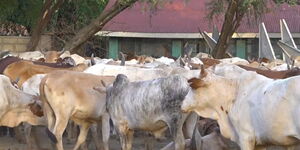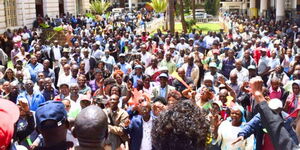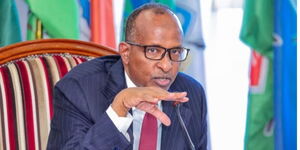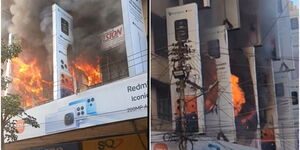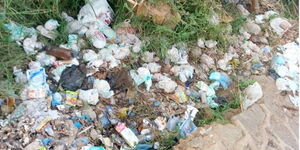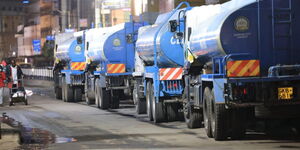As the Energy and Petroleum Regulatory Authority (EPRA) prepares to unveil the October-November fuel prices on October 15, mixed sentiments are emerging over the impending review.
The uncertainty is being fuelled by rising global oil prices, geopolitical conflicts, and local legal hurdles. Despite a recent drop in the landed cost of diesel, Kenyans remain wary of what lies ahead.
The Central Bank of Kenya (CBK) on Friday, October 11, reported an increase in international oil prices in its weekly bulletin dated October 11. It highlighted a surge in demand coupled with heightened tensions in the Middle East as key factors driving prices up.
The cost of Murban oil jumped to USD 78.62 on October 9, up from USD 76.54 just a week earlier. Analysts predict that the humanitarian crisis in the region will inevitably drive prices higher at the pump.
The geopolitical conflict in the Middle East has thrown a wrench into efforts to keep fuel prices steady. Hostilities have disrupted oil supply chains, forcing international prices up, with Kenya bearing the brunt of global shifts. The rising costs may jeopardise inflation gains in the country, with consumers bearing the financial burden.
The legal tussle surrounding the Roads Maintenance Levy (RML) has added to the uncertainty. The High Court on Monday, October 7, extended an order barring EPRA from implementing the Ksh25 per litre levy increase until October 15.
While the court's ruling has momentarily shielded motorists from higher costs, the looming cut-off date has many on edge. Any delay in resolving the issue could see a sharp rise in prices, dampening the effects of a strong shilling and stable landed fuel costs.
In the current pricing cycle, the landed cost of diesel fell by 2.95 per cent to USD 673.36 (Ksh87,146.25) per cubic metre, while that of petrol dropped by 1.53 per cent. Despite these reductions, Kenyans remain sceptical about price relief at the pump due to the global market's volatility and EPRA’s previous actions.
EPRA's controversial decision to raise the RML in July, despite public outcry, left many feeling uneasy about the upcoming review.
EPRA's previous stance has been to downplay the impact of court rulings on pricing decisions. The upcoming ruling on October 15 will determine whether the agency will continue to enforce higher levies or comply with the High Court’s directive. For now, many motorists feel like they are at the mercy of unpredictable forces, both domestic and international.
The government has faced growing pressure to address high fuel prices, which have strained households and businesses alike. The recent fuel cost cap—Ksh188.84 for petrol, Ksh171.60 for diesel, and Ksh158.32 for kerosene—may have offered temporary relief, but the underlying issues remain unresolved. The fluctuation in global oil markets and local regulatory challenges continue to create an environment of economic anxiety.

